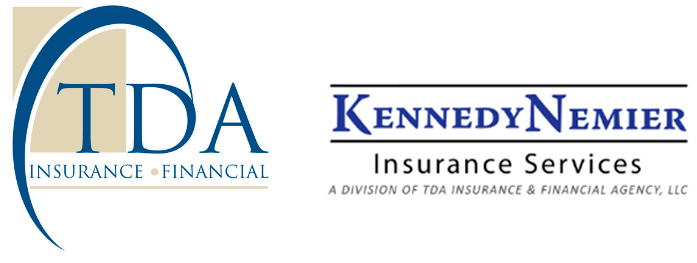When planning a trip that involves renting a car, whether for business or pleasure, one of the critical considerations you’ll face is whether to opt for rental car insurance. The decision can seem daunting with various options and opinions on whether it’s necessary. However, understanding what rental car insurance covers, when it makes sense to purchase it, and how it compares to your existing insurance policies can help make your decision clearer and more informed.

Understanding Rental Car Insurance
Rental car insurance is not a single policy but a collection of optional protections that rental companies offer to cover damages, theft, and liability while the vehicle is in your possession. These options typically include:
- Collision Damage Waiver (CDW)/Loss Damage Waiver (LDW): This isn’t actually insurance. Rather, it is a waiver that absolves you of financial responsibility if the rental car is damaged or stolen. However, it might not cover damage from speeding or driving on unpaved roads.
- Liability Insurance: This covers you if you cause damage to another vehicle or injure someone while driving the rental car. Rental companies are required by law to provide a minimal amount of liability insurance. But it is still insufficient for other incidents such as a stolen vehicle or physical damage.
- Personal Accident Insurance (PAI): PAI covers medical costs for you and your passengers in the event of an accident.
- Personal Effects Coverage (PEC): This covers the theft of personal items from the rental car.
You have the option to purchase, all, some, or none of these policies when renting a car. You will not need to worry about legal issues because rental car companies must provide a minimal amount of liability insurance. However, you may want more than just the minimum amount of coverage.
Do you Already Have Rental Car Coverage?
Before opting for any rental car insurance, it is vital to assess your existing insurance policies. Many personal auto insurance policies extend coverage to rental cars, including full coverage car insurance (or collision and comprehensive coverage). However, it is important to confirm the details with your insurance provider, as there may be limitations or exclusions based on the vehicle type or rental location.
Furthermore, the amount of coverage that extends from your personal auto policy depends on your particular policy. Typically, the amount of coverage on your personal policy is extended to the rental car. For example, if you have basic liability insurance coverage, your personal coverage will only extend to liability for the rental car. But this is not always the case. It is never a bad idea to double check with an insurance advisor if you are unsure.
It is also important to note that if you rent the vehicle in the business name or for business purposes, your personal auto policy will not extend coverage.
Coverage Through your Credit Card Company
Surprisingly enough, many credit cards include rental car coverage. You access this coverage when you pay for a rental car using that credit card and declining the optional rental car insurance waivers. But not all credit cards include this coverage. Before declining the optional rental car insurance, it is vital that you check with your credit card company. If your credit card does include coverage, you may want to ask what type of coverage it is. There are two different coverage types that are offered.
- Primary: this will apply before any other coverage. This primary coverage typically covers 100% of the costs, and you will never have to file a claim through your personal auto insurance plan.
- Secondary: you must file the claim through your personal auto insurance policy first. The credit card company picks up whatever your personal plan does not cover. This means you will still be subject to a deductible through your auto insurance company.
Most credit card companies offer a secondary plan. Although luxury credit cards are more likely to offer primary coverage. With secondary coverage, you will still be subject to a deductible in the event of an accident or stolen vehicle. For that reason, some people decide to buy insurance through the rental car company anyway.
You May Have Coverage Gaps
Credit cards or personal auto plans may offer limited rental car coverage that include coverage gaps. The amount of coverage your credit card or personal auto policy provides for rental cars depends on several factors. The type of policy you have (and the policy terms and conditions), your insurance provider, the company you are renting the car from, the state you live in, and the state/country you are renting the car from could affect your coverage. Some of these factors may vary each time you travel. You should speak with an agent each time you rent from somewhere new or with a different company. Do not forget to mention crucial details such as traveling through multiple states with your rental. They will make sure you are covered and check for any coverage gaps.
When traveling abroad it is especially important to double check with an insurance advisor. Even if you get full coverage from your credit card company or personal auto plan in the U.S, that coverage does not likely extend overseas.
Why Might I Still Benefit From Rental Car Insurance?
When you purchase the collision waiver through the rental car company, you are not subject to a deductible when you make a claim. That is not the case when you make a claim through your personal auto policy. As mentioned, it is also not the case with secondary coverage through your credit card company. For that reason, some people decide to buy rental car insurance anyway.
When traveling in an unfamiliar place, accidents are more likely to happen. In addition, the rental company will want you to pay for minor damage that you would not usually make a claim for, like small dents or scratches. If you have a high deductible, the money will need to be paid out of pocket. Even with a low deductible, a claim will raise your insurance premium if you use your personal auto insurance. Since the cost of the optional rental car insurance is typically from $15-$30 per day, it may be worth it to avoid the risk and pay the extra cost.
Your personal auto policy and credit card company will not cover you for loss of use or diminished value. This is another benefit of purchasing rental car insurance, specifically the collision damage waiver.
- Loss of use refers to the time a vehicle spends in the shop for repairs instead of being rented out to other drivers. If you pay $50 per day for a rental car, they will charge you that amount for each day the vehicle cannot be rented out.
- You will also face charges for the diminished value of a vehicle after it has been in an accident. Even once repaired, the vehicle’s value remains lower.
Summary: Making an Informed Decision
When deciding on rental car insurance, it is important to:
- Review your personal auto insurance policy and credit card benefits to understand the extent of their coverage for rental cars.
- Consider the nature of your trip and the driving conditions you will encounter. It might affect the risk of damage or theft.
- Assess the rental location, especially if you are renting a car abroad. Your personal insurance or credit card benefits may not apply abroad.
- Calculate the total cost of insurance against the potential financial risk, considering both the rental company’s fees and any deductibles you might have to pay with your personal insurance.
In conclusion, while rental car insurance may seem like an additional and sometimes unnecessary expense, it plays a crucial role in protecting you from significant financial loss. By taking the time to understand your coverage needs, existing policies, and the specifics of your rental agreement, you can make an informed decision that balances cost, convenience, and security, ensuring peace of mind during your travels.
Check with a Trustworthy Insurance Advisor
Figuring out what your personal auto plan covers and does not cover is complex. That’s why at TDA Insurance we have a team of trained insurance advisors with a vast knowledge about auto policies from over a dozen different companies in the state of Michigan. They can easily look at your personal auto policy and quickly inform you on your rental car coverage, and of any gaps that may exist.
Need an advisor? Contact a TDA agent today!
